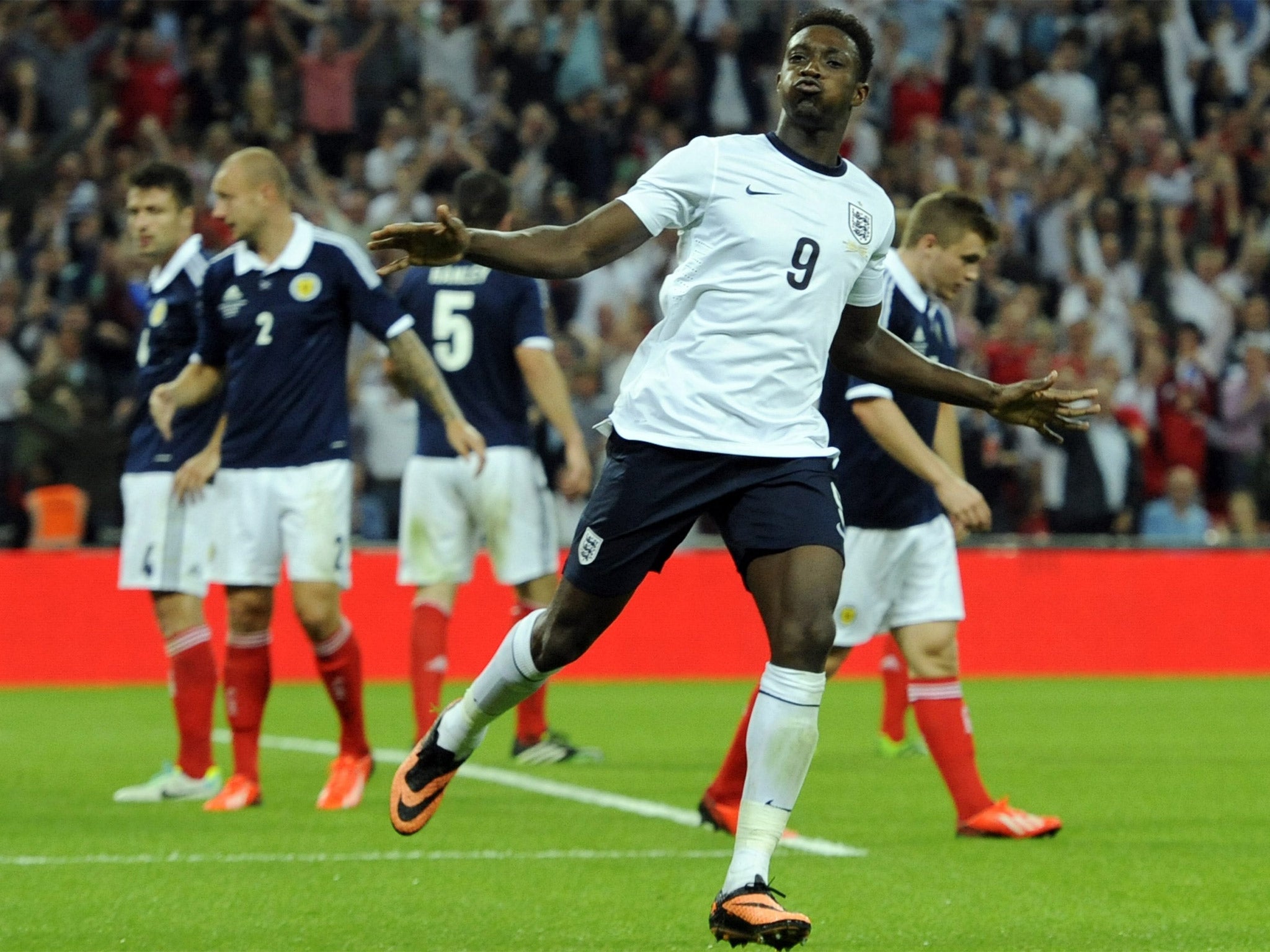Comment: It's time for England to follow the German example
An inability to retain the ball is making it extremely hard to close out matches

When Nobby Stiles made his England debut in 1965, against Scotland at Wembley, he went to shake the hand of his Manchester United team-mate Denis Law before kick-off. As he extended his hand Law snarled: “F*** off you little English bastard”.
Scotland may already be among the living dead when it comes to qualification for World Cup 2014 but there is nothing like a crusade to Wembley to give the auld enemy the kiss of life. Any England player tending to complacency after the under-21s despatched the junior jocks 6-0 on Tuesday night was swiftly disabused when James Morrison renewed the suspicion that Joe Hart's position in the England goal may not be the sinecure it once seemed.
Which was, perversely, just what Roy Hodgson needed. The August friendly is a distraction for many players with the Premier League's opening inevitably on their minds, but once Morrison scored they had to focus on the here-and-now. It became a proper work-out in advance of the demanding World Cup qualifying programme on which much rests.
England prevailed in the end, but it was a while before they met the challenge. Even before Morrison's goal Scotland pressed more effectively, held their shape and broke sharply. England pushed the visitors back but were never able to feel in command and it was Scotland's ambition which was the undoing of them as space was left in behind for Theo Walcott to step on the turbo and level.
It was a neat finish which will further encourage Walcott's desire to lead the Arsenal attack. Arsene Wenger will note, though, that he came off the wing to score Hodgson having detailed him to stay wide on the right. On the other flank the width was provided by Leighton Baines with Danny Welbeck drifting inside to support Wayne Rooney in an attempt to facilitate some close-quarter interchanges between them and the advanced midfield duo of Jack Wilshere and Tom Cleverley. They never quite managed to open up Scotland in this fashion but there were promising signs which may bear fruit in the qualifiers to come.
Steven Gerrard sat deeper and while England trailed was unable to resist the temptation to deliver several overly optimistic Hollywood passes in an attempt to prompt the equaliser. A player of his experience should know there was no need, so early in the match, to try and force to play that way.
This flexible 4-3-3 is the preferred shape of Hodgson's new England (it remained the same when Frank Lampard replaced Wilshere at the break, and when Alex Oxlade-Chamberlain came on for Gerrard on the hour). Four-four-two has been consigned to history, for now at least. In its place is a fluid formation with clever ball players and a mobile front line. That is the theory. The subsequent arrival of Rickie Lambert underlined the belief that there is a Plan B, and it is now as likely to involve Lambert as Andy Carroll.
How long Hodgson persists with Plan A, which does not create enough chances against good opposition (or, as tonight, moderate opposition playing above itself) remains to be seen. The goals did, after all, come from a counter-attack and two set-pieces, not from some neat Barcelona-esce passing move,
The much-vaunted academy system is intended to develop more players like Wilshere and Cleverly, but the debate continues as to what should be 'the English way'. The usual mantra is 'pride and passion' but such attributes are hardly unique to these shores, and they are not a way of playing football. Many factors, not least the climate and the game's cultural history, mitigate against aping the Spanish model. The lack of tactical debate and knowledge in England, though this is changing, suggests the Dutch or Italian philosophies are equally alien.
The modern German game is one best suited to English (and Scottish) players. A decent tempo, pressing high up the pitch, and no shame about playing the occasional long pass or scoring from set-pieces. Technique needs improvement at all levels, not least because tournaments are played in summer climes and chasing the ball for 90 minutes, in a format which demands a game every four days, is no recipe for success.
An inability to retain the ball also makes it extremely hard to close out matches. At 3-2 England looked like conceding an equaliser right until the final whistle. The Premier League nature of the game was a factor, but so was a defence which has become worryingly porous and a midfield which struggles to simply rotate the ball between them when under pressure
Such inadequacies have bedevilled England teams for decades and Hodgson cannot be expected to fix them in the brief time he has with these players. He has to find a way to mask the deficiences and achieve short-term success this autumn, then a respectable performance in Brazil. The target is France 2016. No one seriously thinks England can win next year's World Cup, but they need to be there to learn and buy time for Hodgson to integrate the young talent and find a winning formula.
Auld enemies: Wembley stats
2 Theo Walcott scored only his second goal in his last 30 appearances for England.
10 In England's last 10 games, only San Marino (twice) have failed to score against them.
1979 Before Kenny Miller, the last Scots-born player to score in open play for Scotland v England at Wembley was John Wark 34 years ago.
Subscribe to Independent Premium to bookmark this article
Want to bookmark your favourite articles and stories to read or reference later? Start your Independent Premium subscription today.

Join our commenting forum
Join thought-provoking conversations, follow other Independent readers and see their replies